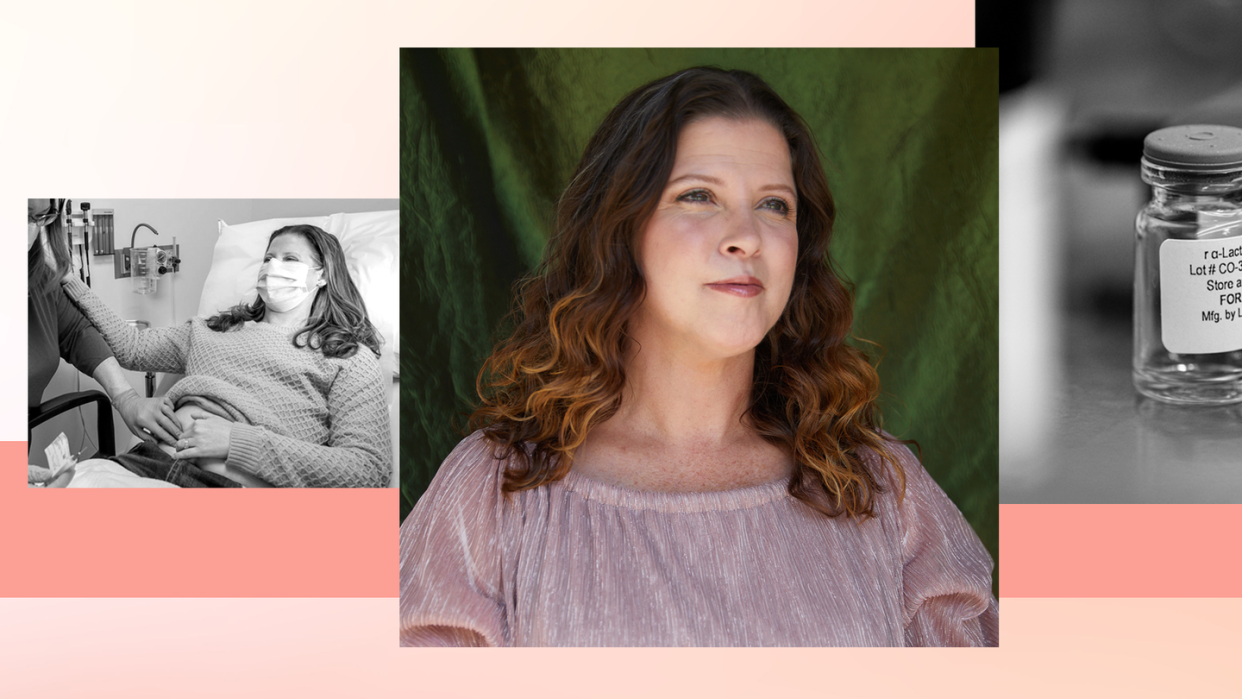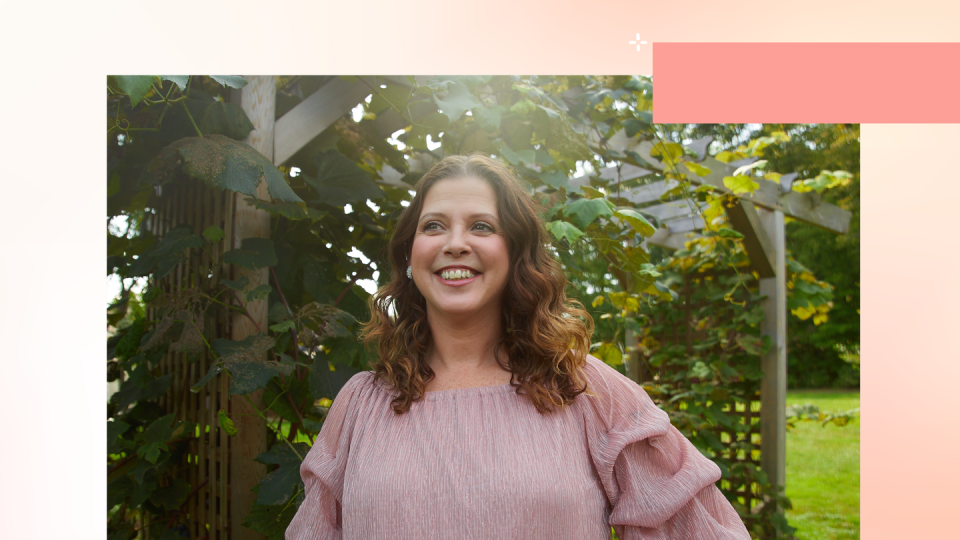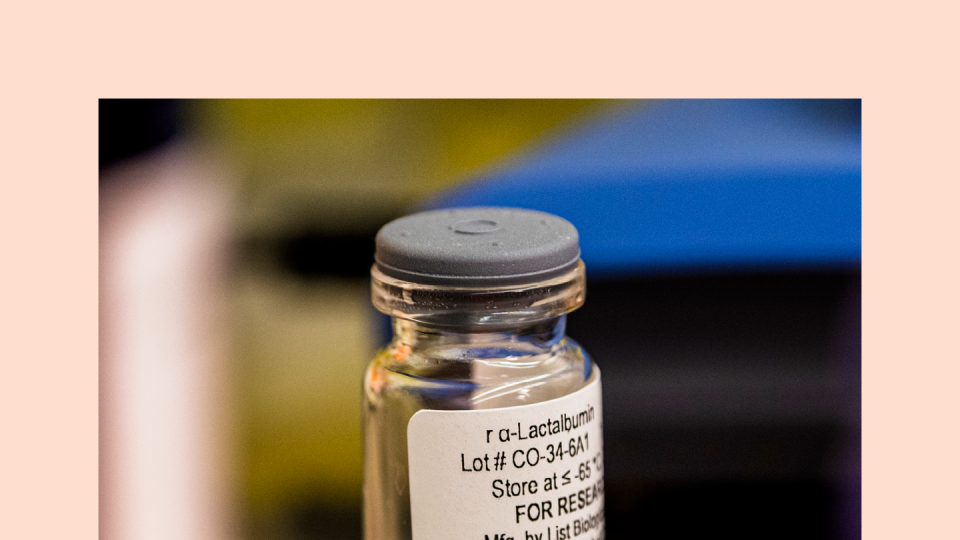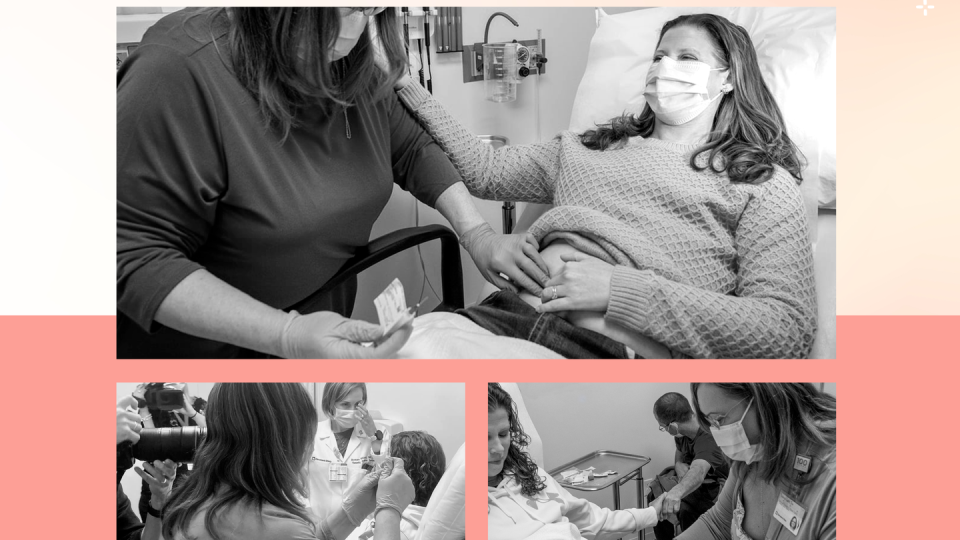‘I Went From Picking Out A Gravestone To Getting The 1st Breast Cancer Vaccine’


Jennifer Davis, 46, was diagnosed with triple-negative breast cancer in 2018, and underwent intense treatment and chemotherapy. In 2021, she opted to receive the first triple-negative breast cancer vaccine when human trials began. She is the first person in the world to receive the groundbreaking, preventative vaccine.
I found a lump in my left breast in February of 2018. After being diagnosed with triple-negative breast cancer (TNBC), and undergoing more than a year of brutal treatment and surgeries, I was finally cancer-free. But my story didn’t end there.
I had survived the most lethal form of breast cancer, but it also has one of the highest risks of relapse. I lived in fear of another cancer diagnosis until, in 2021, I became the first person in the world to receive a groundbreaking new vaccine designed to prevent breast cancer. It completely changed my life.
I first felt the lump in my left breast during a self-check.
I was a 41-year-old nurse living in a small town in Ohio with my husband and three kids. Up until then, I took my health for granted.
My husband, Brian and I met in high school and eloped in Las Vegas after having our first child, Austin. Since we had kids so young, all of my twenties were dedicated to being a mom, and my health and body were never my priorities. At 35, I graduated nursing school and it was my job to tell people to be proactive about their health, but I never thought twice about myself. No one in my family had a history of cancer. I was always healthy.
After finding the lump, I went to get a mammogram at a local clinic, which led to an ultrasound. A month later, in March of 2018, I got a biopsy. When that biopsy came back negative for cancer, it was the first time in my life that my body told me something was wrong—I knew the results weren’t accurate. It was a gut feeling. And I listened.
It took six months to get the correct diagnosis.
I went back for ultrasounds every month. My doctor could see the lump was growing, but he was confident with the negative biopsy result. He told me I didn’t have to keep testing, and in July, he told me to come back in a year.
In August, still convinced something was not quite right, I went to the Cleveland Clinic for a second opinion, and a month later, I got a call with a new biopsy result: It was triple-negative breast cancer.
Listen, people are human, doctors are human. They originally made a mistake with me. Mistakes happen all the time. We all make them.
What this new diagnosis meant was that when doctors tested my biopsied breast tissue, they found a specific type of cancer cell that, unlike other breast cancer cells, didn’t have estrogen or progesterone hormone receptors, and didn’t make much or any of the HER2 protein that repairs and grows breast tissue cells. As a result, tests for these two hormones and the protein show up “negative.” Without those receptors or protein, doctors have fewer options for treating the cancerous cells.
The Google results are grim. Triple-negative tumor cells multiply at the fastest rate. Plus, TNBC has the fewest effective treatments available and among the highest recurrence rates (around 40 percent). Even if treatment works, people who’ve had TNBC still go back to the doctor every three months to make sure it hasn’t come back.
I had to stay positive, so I focused on finding a team of doctors I could trust for my treatment, and landed on Cleveland Clinic.
I was always looking ahead. “What do I have to do to get rid of this? Let’s do this treatment. Let’s move forward,” were the only phrases running through my mind.
I had an incredible community supporting my family and me.
I’m from a small town, and everyone knows each other. After my diagnosis, I started getting cards in the mail. I mean, stacks of handwritten cards from everybody—people I hadn't talked to in 30 years. I got a stationary card from my third-grade teacher.
Some friends would bring us meals, and other parents would step in when I couldn’t be there for my kids. Around that same time, I lost my job, and we were about to lose our insurance—right as my radiation treatment was about to start. My nursing school professors came to the rescue and threw a breakfast to help cover my health insurance. They raised $10,000 in three hours.
I prayed a lot. I cried a lot. But laughter and humor helped the most. I watched Friends during every chemo treatment, sometimes for six hours at a time. And at home, I’d turn on Impractical Jokers. I tried to keep my life as normal as possible, and my family made sure I was never alone.
Halfway through my treatment, the side effects from the chemotherapy drugs got too severe.
Chemo is a cancer treatment that uses powerful chemicals to kill fast-growing, cancerous cells, but it can damage healthy cells, too—in your heart, kidneys, lungs, bladder, and more.
I couldn’t button my shirt. I couldn’t unscrew a water bottle lid. My doctor told me we needed to stop chemo, or I could be in a wheelchair for the rest of my life. I still did one more chemo treatment after that because I was determined to get rid of this cancer. I ended up in my local emergency room a few days before Christmas because I couldn’t breathe.
This was the only time I thought I might really die, and it was awful to imagine not being there for my kids on their wedding days or to meet grandchildren. I wrote letters and recorded videos for everyone. I arranged for my funeral. I even went to the cemetery to pick out my own gravestone just a few days before Christmas. I didn’t want to be a burden.
My new plan became a double mastectomy and 26 rounds of radiation. I stayed positive, even when the radiation caused the left side of my chest to open up. I focused on finishing the surgeries and treatments so that I could be cancer-free. But there’s no pill that can put your mind at ease, that can tell you the cancer isn’t going to return. Survivors with my type of breast cancer often relapse.
Even with the cancer gone, I lived in fear. When I wasn't feeling well, I thought the worst every single time. Every headache was a scare. I felt like anything could be a symptom of relapse, and I worried that I would have to go through all that life upheaval and treatment again.
I heard Cleveland Clinic was working on a new vaccine, and I could be eligible.
When I asked my nurse practitioner at Cleveland Clinic if there was anything I could do to stop the cancer from coming back, she told me that a groundbreaking vaccine that could prevent breast cancer was on the way.

In fact, the lead researcher on that vaccine at the Cleveland Clinic, the late Dr. Vincent Tuohy, had been studying TNBC for two decades. The preventative breast cancer vaccine he helped create is the first of its kind, targeting a lactation protein called alpha-lactalbumin that is found in most cases of TNBC, per the Cleveland Clinic. The vaccine is designed to prompt the immune system to attack the cancerous cells in the breast tissue and prevent a tumor from growing.
I asked my medical team how many subjects in the animal trials had a cancer recurrence over the 20 years of research. They said: Zero. I also asked how many experienced anaphylactic shock, and the answer was also zero. Working in medicine, I know that this rarely happens in trials, and these stats calmed my fears.
Every three months, I checked in until the vaccine was available, and I barely made eligibility. To be eligible to receive the vaccine during this trial phase, I had to have completed treatment for early-stage, triple-negative breast cancer within the past three years, currently be tumor-free, and at high risk for cancer recurrence. That meant that I had to get the first dose within three years of my first chemo treatment, which was on October 15, 2018.

I got the first of three vaccine doses on October 19, 2021. It was a whirlwind. I am now the first person in the world to receive the new vaccine, and I still can’t believe it. I’ve had no major side effects. And if it works, it will prevent my TNBC from recurring.
So far, 16 people have received the TNBC vaccine. And in February 2023, Cleveland Clinic researchers launched the next phase in their study, working with individuals who are cancer-free but at high-risk for developing my type of cancer.
It’s too soon to tell when the vaccine will be available to the public, but I’m sharing my story so that everyone knows about it.
The vaccine changed my life almost immediately.
My mind is at ease. If I have a headache, I take an Aleve, instead of worrying it’s a more sinister symptom. I look at time in a completely different way. I quit working overtime. They won't talk about how much you worked at your funeral. They won't talk about how much money you made. They’ll remember how you made them laugh hysterically and how you lived a spontaneous life.
If I could go back and tell my younger self anything, it would be to value the life you have in front of you now, instead of overworking to afford someone else’s. For the first time ever, my husband and I go on dates every Friday. I’m saying yes to things I normally wouldn’t do, like getting dinner with friends and going on a cruise with my mother.
I’m feeling so lucky and so blessed that after many scary moments, I have another chance to live.
You Might Also Like


